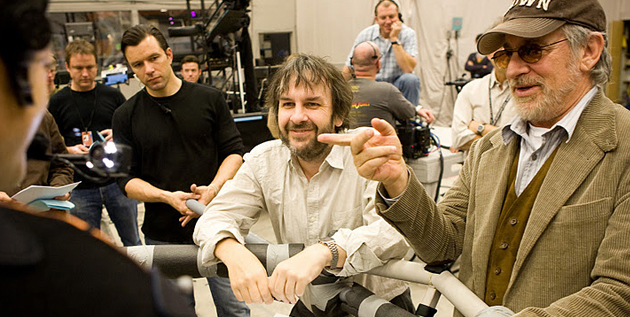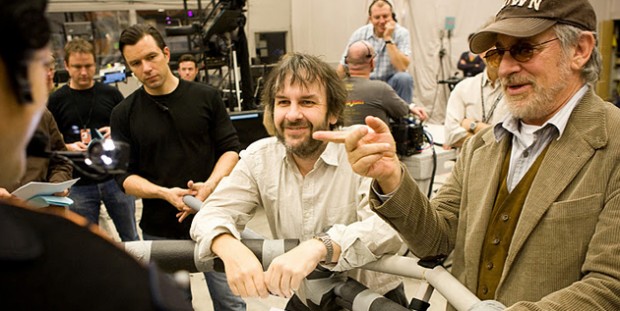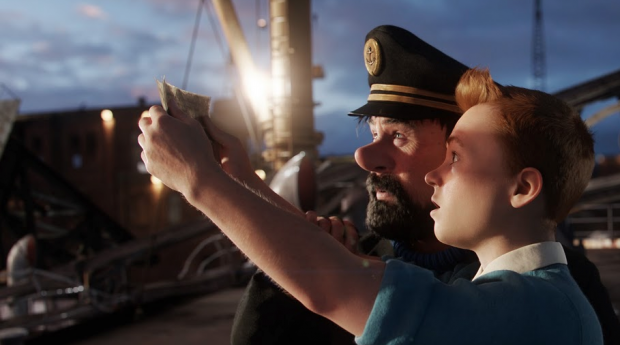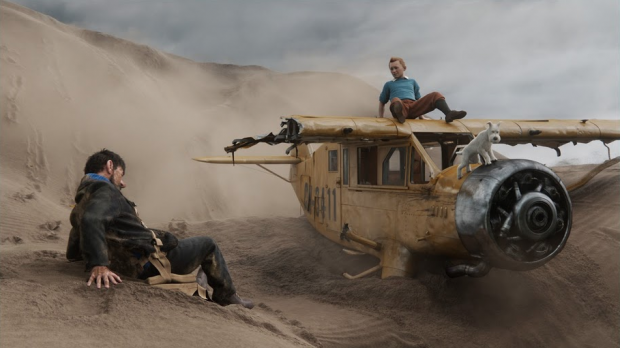Steven Spielberg sits down at the Mandarin Oriental Hotel in New York City. He’s surrounded on his right by producer Kathleen Kennedy and special effects guru Joe Letteri, and on his left by stars Jamie Bell and Nick Frost. Yet despite that wealth of creative talent seated at the front of the pressroom, journalists seem exclusively zeroed in on Spielberg — he’s essentially the target of every question being asked.
Unsurprisingly, though, the iconic director, addressing everything from his early fascination with Normal Rockwell to the labored-over images in his new action-adventure picture The Adventures of Tintin, matches the straight-arrow interest of his questioners note for note. With Tintin and War Horse both hitting theaters this holiday season, and with production on the Daniel Day-Lewis-starring Lincoln well underway, Spielberg is clearly in the crunch of a major creative spree, and that focus bleeds into his responses, which are rifled off with forceful precision.
The topic of conversation eventually shifts to Hergé, the celebrated comic-book author behind Tintin‘s source material. Hergé passed away in 1983 before he could officially hand over adaptation rights to Spielberg, who had first addressed his interest in the comic books after Hergé‘s name popped up favorably in a review of Raiders of the Lost Ark. Spielberg sought out the comics and fell in love with them immediately, and was later given the rights to the material by Hergé‘s widow.
For most of his life, however, Hergé remained a riddle, as did, in a way, his Tintin comics. Jamie Bell chimes in for the first time when this subject is brought up, saying, “I’d generally ask questions about the character — like, who is he? Why is his only friend a dog? Why does he hang out with someone who has terrible control of his vices? Where are his parents? Things like that. And I trolled through all 23 adventures in preparation just to try and find all these answers to this mystery — the heart of all of these adventures. And it’s impossible. You can’t find any answers. I think that’s because Hergé himself is also an enigma.”
When pegged for more specifics on his rooted admiration for Hergé‘s works and the Tintin character, Spielberg instantly cites the character’s ability to “never drop the ball. He had laser micro-vision. And he had the gift of deductive reasoning.” And the parallels that develop between Tintin’s occupation and Spielberg‘s own — “Tintin is a reporter, he’s a journalist, he goes around the world looking for a good story to report and then he gets involved with the story,” says the filmmaker — are lovingly reassuring, because it’s hard to watch The Adventures of Tintin without imagining Spielberg behind the camera with a smile on his face. There’s some genuine heart at work here.
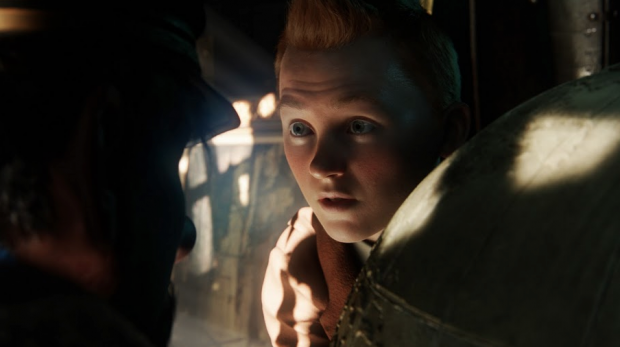 Perhaps the most intriguing question of the afternoon comes late in the proceedings when a journalist asks Spielberg if he’d ever have the interest to depart from his big-budget, grand-scale tendencies to tackle projects of the smaller-scale variety. “I’ve been doing some small scale work in television,” is one of the director’s first responses. He goes on: “But, yeah, if I ever found a story that just empowered me to want to direct it – a couple characters in a room — I would do it. I like all kinds of stories. I [don’t just] go for big, sweeping epics. It just so happens that some of these films have aligned themselves with me. They have big possibilities for production value, but they’re also intimate stories. War Horse is one of the most intimate movies I’ve ever made, and yet it’s set against a big mural of history and events that take place.”
Perhaps the most intriguing question of the afternoon comes late in the proceedings when a journalist asks Spielberg if he’d ever have the interest to depart from his big-budget, grand-scale tendencies to tackle projects of the smaller-scale variety. “I’ve been doing some small scale work in television,” is one of the director’s first responses. He goes on: “But, yeah, if I ever found a story that just empowered me to want to direct it – a couple characters in a room — I would do it. I like all kinds of stories. I [don’t just] go for big, sweeping epics. It just so happens that some of these films have aligned themselves with me. They have big possibilities for production value, but they’re also intimate stories. War Horse is one of the most intimate movies I’ve ever made, and yet it’s set against a big mural of history and events that take place.”
And at the end of the day, it’s just that – Spielberg‘s evident, heartfelt love for this world and this character – that sweeps The Adventures of Tintin off the ground and makes it one of the most purely enjoyable films of the year. There’s no doubting the technical mastery at every step of the film — the long-take Morocco sequence, as exhilarating as it sounds, has been generating plenty of discussion, and there’s a fantastic opening credits sequence that recalls the irresistible slickness of Catch Me If You Can — but it’s the deeply-rooted passion more than anything else that rings true here. And you feel it in every frame of the film.
The Adventures of Tintin in now in wide release.

